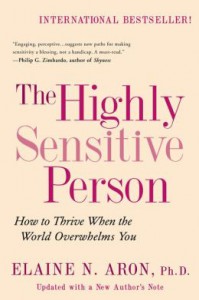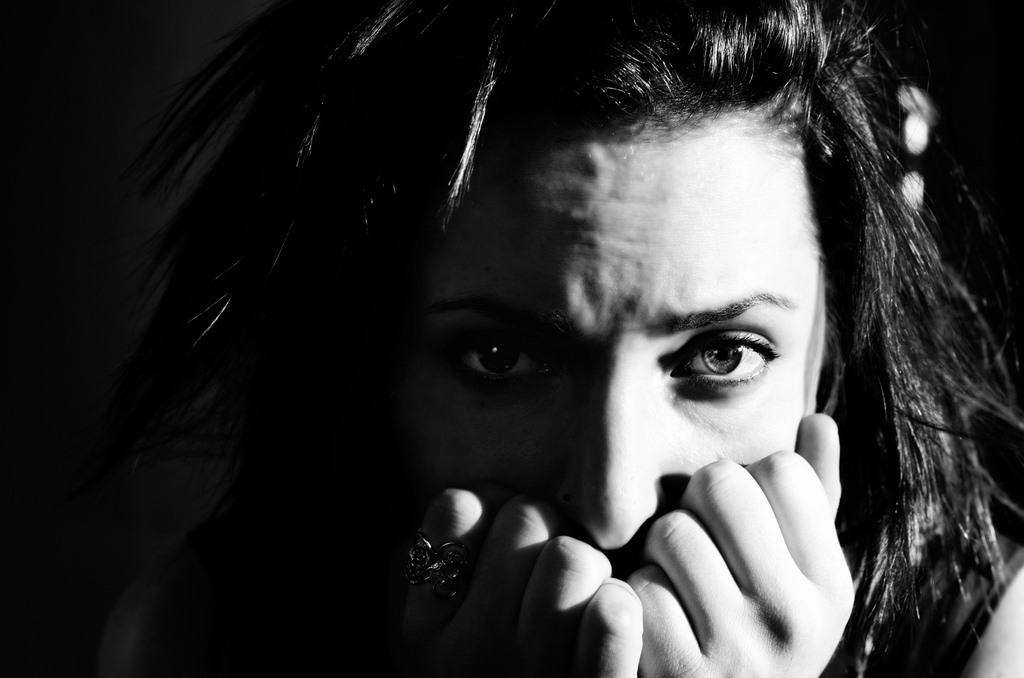If you are the shy type, you know that, in many ways, you’re a misfit. Sometimes, people disdainfully look at you because you don’t fit in. Medicine has looked at this fear of people and given it a label of Social Anxiety Disorder. This itself can be a blessing; sufferers can get help. But sufferers are now labelled with the disorder and the stigma that comes with it.
Worse still, you can feel flawed and ashamed of being different. Yet a book helped me realise that my anxiety and loneliness were not due to a flaw within me.

This is what Elaine Aron explains in her Book The Highly Sensitive Person: How to Thrive When the World Overwhelms You.
Are You Highly Sensitive?
First up, if you do feel anxious and stressed in social situations Aron offers some criteria.
If you answer yes to most of the questions below then you are probably one of the 15 to 20 percent of the population who is highly sensitive.
- Are you easily overwhelmed by such things as bright lights, strong smells, coarse fabrics, or sirens nearby?
- Do you get rattled when you have a lot to do in a short amount of time?
- Do you make a point of avoiding violent movies and TV shows?
- Do you need to withdraw during busy days, into bed or a darkened room or some other place where you can have privacy and relief from the situation?
- Do you make it a high priority to arrange your life to avoid upsetting or overwhelming situations?
- Do you notice or enjoy delicate or fine scents, tastes, sounds, or works of art?
- Do you have a rich and complex inner life?
- When you were a child, did your parents or teachers see you as sensitive or shy?
A more detailed test can be found here.
Not everyone who has Social Anxiety will be sensitive, but it’s important to know if you are. Which makes this book so important.
To be an HSP is to react to the world a lot more easily and intensely than those who are not so sensitive. The nervous system can’t filter out all the noise, sights, smells, and internal sensations like hunger and ideas. All this swirling stimulation makes you feel stressed and upset, even though you may not notice. You end up feeling strung out and confused about why.
Evidence for this can be found in your biology. Stress markers, like cortisol and adrenaline, are higher in sensitive types than non-sensitive ones.
The result is that HSPs spend much time managing that stress by preferring quieter pursuits and working alone. However, it can make you look timid, withdrawn, and even reclusive.
All this means that HSPs need to take care of themselves more carefully. Choosing those environments and a lifestyle that can help control stress levels by keeping stimulation to an acceptable level.
Good and bad
Being highly sensitive does have it’s problems.
- physical symptoms to do with stress like, sweating palms, muscles twitching, and tension
- feeling overwhelmed by a situation including the emotions of others
- need a lot of time to ourselves
- feel outcast in our own society
The good side is that
- HSP are often interested in creativity. So a strong desire for art, ideas and knowledge
- greater perception of sensory details, which can lead too….
- greater subtly and nuanced in our thinking
- more perceptive of others emotional states, so more empathic
The sort of careers that HSP go for involve a lot of introspection, such as Philosophers, teachers, therapists. As well as creative types like writers, artists. This because HSPs tend to think deeply about their experiences than others with all this information. HSP can seem empathic, a least when they’re not over aroused by the world.
So the lesson here is that we have got it wrong when it comes to people being shy. People have been mislabelled with a problem when it’s just a side effect of that sensitivity. Think of yourself more as a Orchid, rather than a Dandelion.
No one proposes that a tendency to feel the cold is problematic, so why should shyness be seen as a problem?
Seeing yourself in a different way
The biggest lesson from this book is that HSPs need to re-appraise themselves, their lives and their place in this world. We think of ourselves as weak, timid, and shy. That we’re flawed individuals who deserve ridicule. This book points out that nonsense and helps us see our traits more positively.
Our traits can be beneficial in many ways. Only some people can be the gregarious go, go-getting extrovert. Some members of society have to be the contemplative types—the advisers, thinkers and artists. Here, we can find our niche, where you will find many HSPs and introverts. The world needs us because this world so often advocates action before contemplation. The world needs us to be ourselves, to be sensitive. Because they can find answers that others miss.
This book is essential for those who are shy and sensitive and label themselves as anxious types. It will elp set you free.
For more on Social Anxiety, Art, and Philosophy subscribe to my newsletter.
Image Credit: Kevin Gebhardt


I like the HSP label- it defines a certain sub-group of people explaining shyness and anxiety as a by-product of being sensitive. I hope more people will become aware of HSP in time.
Thanks for the comment. I feel as though i am an HSP. I am far to affected by the world around me and it’s lead to problems with my health. On the other hand it also fuels my own creative endeavors. So it has it’s ups and downs.